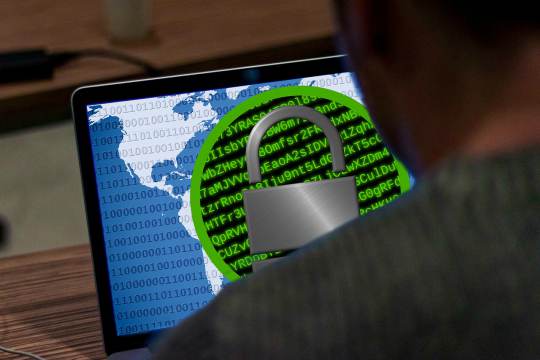Almost everyone uses public free Wi-Fi hotspots or has been tempted severally to use it on a daily basis. It could be while catching up with a friend at a coffee shop or while waiting for a flight at an airport.
Free Wi-Fi is convenient at such places and keeps us entertained and can also help us do our business remotely hence enabling one to kill two birds with one stone. Ideally, to retain clients and make them happy, almost all public places have free Wi-Fi.
On the flip side, this public free Wi-Fi can also be a source of danger to your privacy. It is not uncommon that hackers leverage on people using free Wi-Fi to get access to data they need for their own malicious actions.
Compared to an office and home Wi-Fi hotspots, the risk of free Wi-Fi at hotels, airports, libraries, restaurants and at conferences is higher as it is mostly unprotected. Their open nature can be a room for bigger problems that will end up compromising your device or your data.
The Top 3 Risks Associated with Free Wi-Fi

1. Malicious Hotspot
Hackers leverage the fact that most people love using free Wi-Fi because it is not only cheap but also convenient.
They may create a honeypot network and mimic it so that it can easily pass for a legitimate Wi-Fi. This is very easy because truthfully when you are connected to a public Wi-Fi it is almost impossible to guarantee that you are connected to the legitimate Wi-Fi network.
To avoid the falling trap of the malicious hotspot it is prudent to avoid logging into your bank account through the public Wi-Fi.
In theory, one may assume that there is encryption that ensures no one is eavesdropping what you are doing. In practice, however, hackers can use so many attacks when you are connected to this public Wi-Fi.
Hackers will always ensure that the name of the malicious public Wi-Fi is almost similar to the legitimate Wi-Fi. The difference will be very minimal and will be hardly noticeable for people who are not very keen.
The malicious hotspots do not have any login requirements. The malicious hotspots are usually set up on areas of high-value target such as financial districts so that they can attempt to harvest your personal data and compromise it.
Related: The Best way to protect Credit Card during Online Transaction
2. Man In the Middle Attack
This is the most common attack and it is where a hacker secretly captures and relays information sent between two parties.
The parties involved in this case always think that they are communicating directly to each other and are oblivious of the fact that there is a third party listening in into their conversation.
Man in the middle attackers usually search for any vulnerability or weakness in a particular network communication protocol and try and make all traffic to go to them as opposed to through a regular router.
The attackers will send a spoofed address resolution protocol message onto the free Wi-Fi. The hoaxed message is basically to convince the user to update their routing data which will eventually enable the attacker to give instructions to the user’s machine that the suitable address will be the MAC address for the attacker’s machine. The attacker will then have the traffic that the user transmits into possession.
3. Malware

When there are so many users who are unprotected using the same network, it is very easy for the cyber criminals to distribute malicious software like viruses and malware.
Attackers usually target software vulnerabilities to slip malware into your device without your knowledge. A software vulnerability is a weakness or security hole that is found in a software program or in an operating system.
Hackers exploit this weakness by basically writing a code to target a particular vulnerability. Once they have found the weakness they inject the malware on the device.
4 Tips to Help Stay Safe When Using Public Free Wi-Fi
1. Use a VPN

This is one of the most effective ways of ensuring you remain safe especially if you are on a public free Wi-Fi. A virtual private network is essential because even if the cyber criminals manage to get in the middle of the conversation, they will not be able to interpret it as it is strongly encrypted.
If you are looking for a VPN that has great speeds and top-notch security and privacy, Avast SecureLine VPN review will guide you to make this ideal choice. It has both the free version that lasts 7 days and the paid version that is very effective and reliable.
2. Turn off sharing
When you are connected to free public Wi-Fi it is prudent to turn off your sharing settings. While it is tempting to share almost everything because it’s free, your security is highly compromised when you do. The first time you connect to a new unsecured network, simply go to your control panel and change the settings.
3. Use SSL connections
Needless to say, you are likely not to have a VPN available for all your browsing on all your devices. However, you can always add an extra layer of encryption to any communication to feel safe. Set your device so that the option of using HTTPS at all times becomes your default setting.
4. Treat all Wi-Fi links with suspicion
When you are not using a private network, you should treat every other Wi-Fi with suspicion. Never assume that all hotspots are legitimate.
Do your research and ask around so that you connect to legit Wi-Fi as opposed to the fake hotspots set by the hackers to get your information. If they are not asking you for login details then it is safe to keep away from that network at all costs.
Conclusion
Being skeptical while using Public Wi-Fi is a good thing because it will protect you from hackers. With the number of risks involved while using public Wi-Fi, it is prudent to take some measures to prevent yourself from the cyber criminals. You could choose to use a VPN which is advisable or opt to always ensure that any Public Wi-Fi you log into is legitimate and protected by using simple tools such as firewalls.
Read Also:
- Top 3 Cybersecurity Solutions For Small Businesses
- 4 Security Issues Every Small Business Needs to Prepare For
- Boost Your Internet Security with These 5 Easy-to-Implement Tips
- Startup Security: Preventing Data Breaches
- 4 Reasons Why You Need Cyber Insurance
- How to Protect Online Business from Cyber Security Threats
Author: Alex Mitchel















